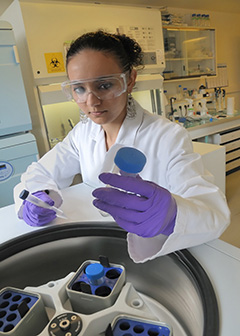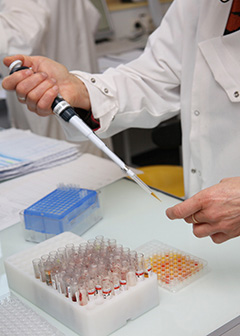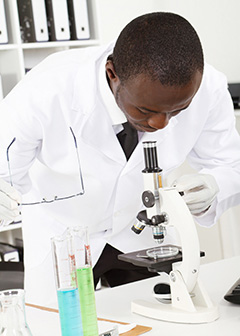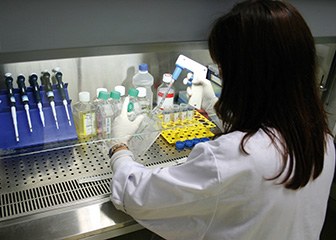Summary

| Quick Facts: Biological Technicians | |
|---|---|
|
$39,020 per year
$18.76 per hour |
|
| Bachelor’s degree | |
| None | |
| None | |
| 80,200 | |
| 14% (About as fast as average) | |
| 10,900 | |
What Biological Technicians Do
Biological technicians help biological and medical scientists conduct laboratory tests and experiments.
Work Environment
Biological technicians typically work in laboratories. Most biological technicians work full time.
How to Become a Biological Technician
Biological technicians typically need a bachelor’s degree in biology or a closely related field. It is important for prospective biological technicians to gain laboratory experience while in school.
Pay
The median annual wage of biological technicians was $39,020 in May 2010.
Job Outlook
Employment of biological technicians is projected to grow 14 percent from 2010 to 2020, as fast as the average for all occupations. Continued growth in biotechnology and medical research is expected to increase demand for these workers.
Similar Occupations
Compare the job duties, education, job growth, and pay of biological technicians with similar occupations.
O*NET
O*NET provides comprehensive information on key characteristics of workers and occupations.
Contacts for More Information
Learn more about biological technicians by contacting these additional resources.











